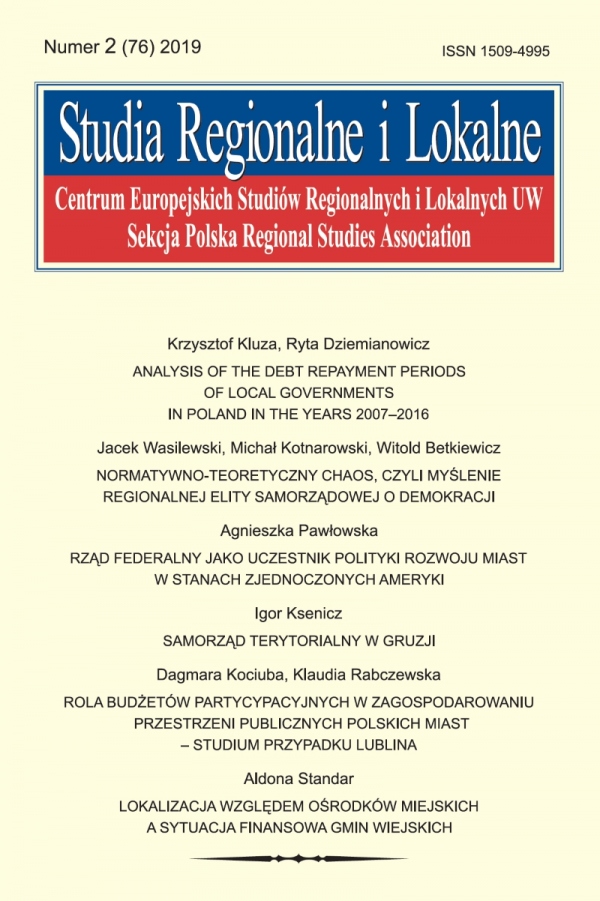Issue:
2(76)/2019
Agnieszka Pawłowska
The federal government as a participant in urban development policy in the United States of America
DOI: 10.7366/1509499527603
Rząd federalny jako uczestnik polityki rozwoju miast w Stanach Zjednoczonych Ameryki
Celem artykułu jest przedstawienie roli rządu federalnego jako jednego z aktorów uczestniczących w polityce rozwoju miast amerykańskich w latach 1965–2012. Paradoks implementacji, rozumiany jako ograniczenie możliwości osiągania celów polityk krajowych w związku z poszerzeniem kompetencji ich potencjalnych oponentów oraz zmieniające się poglądy kolejnych prezydentów na federalizm zostały uznane za kluczowe w wyjaśnianiu tytułowego zagadnienia. Posłużono się kategoriami: federalizmu, orientacji i instrumentów rozwoju oraz nakładów finansowych na rozwój. Orientacja i instrumenty rozwoju zostały przedstawione na podstawie wybranych programów federalnych adresowanych do miast, nakłady zaś – na podstawie budżetów federalnych. Ramy teoretyczne pracy stanowią trzy generacje teorii implementacji polityk publicznych. W konkluzji autorka wskazuje na wycofywanie się rządu federalnego i rosnące znaczenie władz stanowych w polityce rozwoju miast.
The federal government as a participant in urban development policy in the United States of America
The article discusses the involvement of the US federal government in the policy of urban development in the years 1965-2012. The implementation paradox, understood as a limited ability to achieve national policy objectives as a result of the empowerment of potential adversaries, and the changing views of the successive presidents on federalism were considered crucial in explaining the discussed issue. The following categories have been used: federalism, orientation and instruments of development, and financial outlays for development. Orientation and instruments of development have been presented on the basis of selected federal programmes addressed to cities, and outlays – based on federal budgets. Three generations of public policy implementation theories constitute the theoretical framework of the study. In conclusion, the author points to the withdrawal of the federal government and the growing importance of state authorities in urban development policy.
Affiliation:
Agnieszka Pawłowska: Uniwersytet Rzeszowski, Instytut Nauk o Polityce, ul. Kopisto 2A, 35-959 Rzeszów, ORCID: 0000-0002-0083-3833;
apawlowska@ur.edu.pl 


